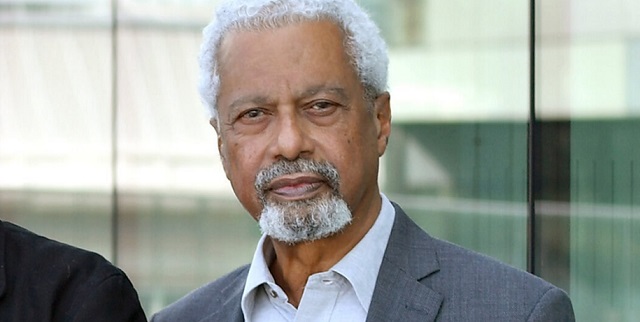
Abdulrazak Gurnah is the first Black African writer to receive the Nobel prize in literature since Nigerian writer Wole Soyinka in 1986.
| THE INDEPENDENT | The 2021 Nobel prize in Literature has been awarded to Zanzibar-born novelist, Abdulrazak Gurnah. He is the first writer from the semi-autonomous island in modern day Tanzania to win the prestigious award and the first Black African writer to receive the prize since Nigerian writer Wole Soyinka in 1986.
Although he has lived in the UK since the 1960s, he was born and raised in Zanzibar leaving the island during the revolution at the age of 18 for the UK. The island only united with the mainland, Tanganyika, to form Tanzania in 1964. He has written 10 novels and several short stories, including “Paradise,” which was nominated for the Booker Prize in 1994. Gurnah’s writing explores the identity, displacement, and loss under east Africa’s complex colonial history.
It means so much for Zanzibar. It gives meaning to the Zanzibari struggle for self determination and now brings it to the world stage.
Until his recent retirement, Gurnah was the Professor of English and Postcolonial Literatures at the University of Kent, Canterbury. His most recent novel, Afterlives, was published in 2020.
“I think it’s just brilliant and wonderful,” Gurnah told Reuters. “It was such a complete surprise that I really had to wait until I heard it announced before I could believe it.”
Gurnah’s writing explores East Africa’s complex colonial history
East Africa has a complex colonial history, spanning several centuries. While most of East Africa was under German and British command, the island of Zanzibar, where Gurnah was born, went through Portuguese, Omani, and British rule and was the main slave-trading port for the region.
Anders Olsson, the chair of the committee that awards the prize, said Gurnah “has consistently and with great compassion, penetrated the effects of colonialism in east Africa and its effects on the lives of uprooted and migrating individuals.”
This award comes at a time where many former colonial powers are being challenged to examine their own history.
“It means so much for Zanzibar. It gives meaning to the Zanzibar struggle for self-determination and now brings it to the world stage,” Ismail Jussa, a politician for the Alliance for Change and Transparency political party in Zanzibar, told Quartz.
“His work is very important to us as it looks at the challenges we have faced – being torn apart by colonial upheavals and different cultures and backgrounds. It will bring these topics back to debate in Zanzibar and in the world.”
Jussa believes this achievement will publicise Gurnah’s work to new audiences in Zanzibar and worldwide. “We are all very happy to see the news trending,” he adds. “Because of this, more people will want to read his novels and they will get to learn about our history.”
This is a significant moment for African literature, where the continent has seen six literature laureates, including Wole Soyinka (Nigeria), Naguib Mahfouz (Egypt) Nadine Gordimer (South Africa) J.M. Coetzee (South Africa), and Doris Lessing (UK-Zimbabwe).
“His writing has the ability to transport you,” said Nguhi Ndung’u, a Kenyan development specialist and literature enthusiast. “His writing has been an important addition to the space of African literature – having a writer that explores pre-independent Zanzibar and Africa, and the impact this has on identity, our relationships to home and race dynamics in an unflinching way.”
The prize is awarded by the Swedish Academy and is worth 10 million Swedish crowns ($1.14 million.)
****
 The Independent Uganda: You get the Truth we Pay the Price
The Independent Uganda: You get the Truth we Pay the Price





